Madison Keys discovers way of lifting the pressure on herself to reach US Open semi-finals against Naomi Osaka
Keys and Osaka breezed into the semi-finals with respective wins over Carla Suarez Navarro and Lesia Tsurenko

Your support helps us to tell the story
From reproductive rights to climate change to Big Tech, The Independent is on the ground when the story is developing. Whether it's investigating the financials of Elon Musk's pro-Trump PAC or producing our latest documentary, 'The A Word', which shines a light on the American women fighting for reproductive rights, we know how important it is to parse out the facts from the messaging.
At such a critical moment in US history, we need reporters on the ground. Your donation allows us to keep sending journalists to speak to both sides of the story.
The Independent is trusted by Americans across the entire political spectrum. And unlike many other quality news outlets, we choose not to lock Americans out of our reporting and analysis with paywalls. We believe quality journalism should be available to everyone, paid for by those who can afford it.
Your support makes all the difference.Madison Keys failed to do herself justice in last year’s US Open final here but the 23-year-old American believes that experience is helping her to cope better with pressure on the biggest occasions.
Keys, who took only three games off Sloane Stephens in her only appearance so far in a Grand Slam final, is through to the last four here for the second year in a row after beating Carla Suarez Navarro 6-4, 6-3 in just 83 minutes.
In Thursday’s semi-final Keys will face Naomi Osaka, who crushed Lesia Tsurenko 6-1, 6-1 to become the first Japanese woman for 22 years to reach the semi-finals of a Grand Slam tournament.
“I'm feeling more comfortable in those big moments and in matches like tonight,” Keys said after beating Suarez Navarro with something to spare. “I have had some big moments before when I was losing and probably putting too much pressure on myself.
“I’ve just been learning from those experiences. I have a better mentality about the whole situation. I remember what my game plan is and just focus on that instead of the actual occasion.”
The world No 14 added: “Last year a lot of my matches were emotional roller-coasters. This year I feel like I have been much more solid mentally. In tougher times I’m keeping my cool a little bit better. I’m not having to have the big emotional swing to try to get back into matches.”
Keys, who also reached this year's quarter-finals at the Australian Open and the semi-finals at the French Open, said that she had found training hard in the week before the biggest events and “trying to not put too much pressure on myself” had helped her to perform better.
In the first set there was not much to choose between Keys and Suarez Navarro, but the American's big serve became a key factor as the match progressed.
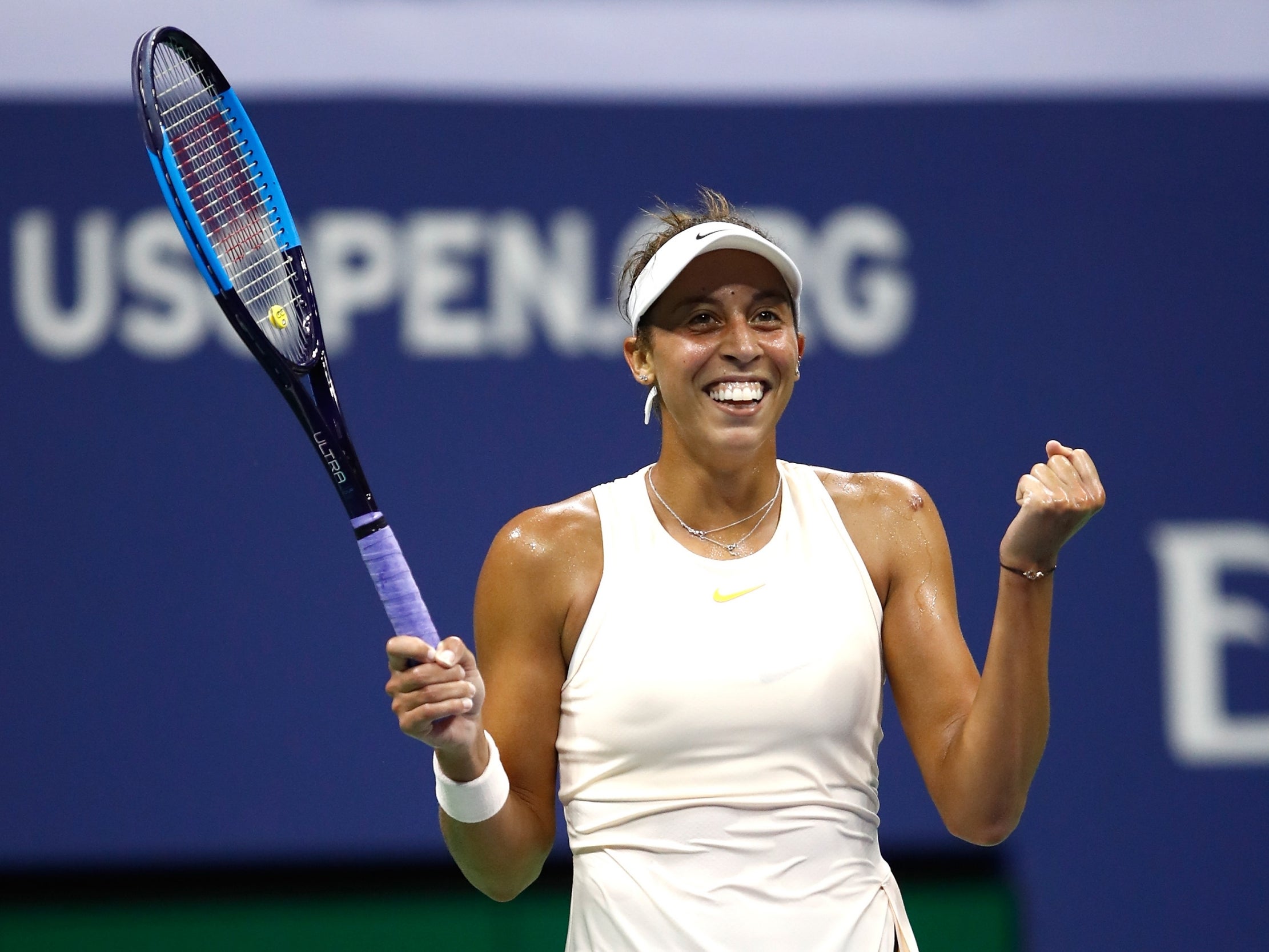
Suarez Navarro thought the serves and returns of both players had been the decisive factors. “I didn’t really serve well tonight and she was putting pressure on me with every return because I don't have a big first serve,” the 30-year-old world No 24 said. “She also served really well and I cannot return like I used to.”
Osaka has a big game, with a serve and a forehand capable of matching those of the very best. The world No 19 had too much power for Tsurenko, who became the third player at this tournament to lose to the Japanese in less than an hour. The Ukrainian later revealed that she had been suffering from a virus.
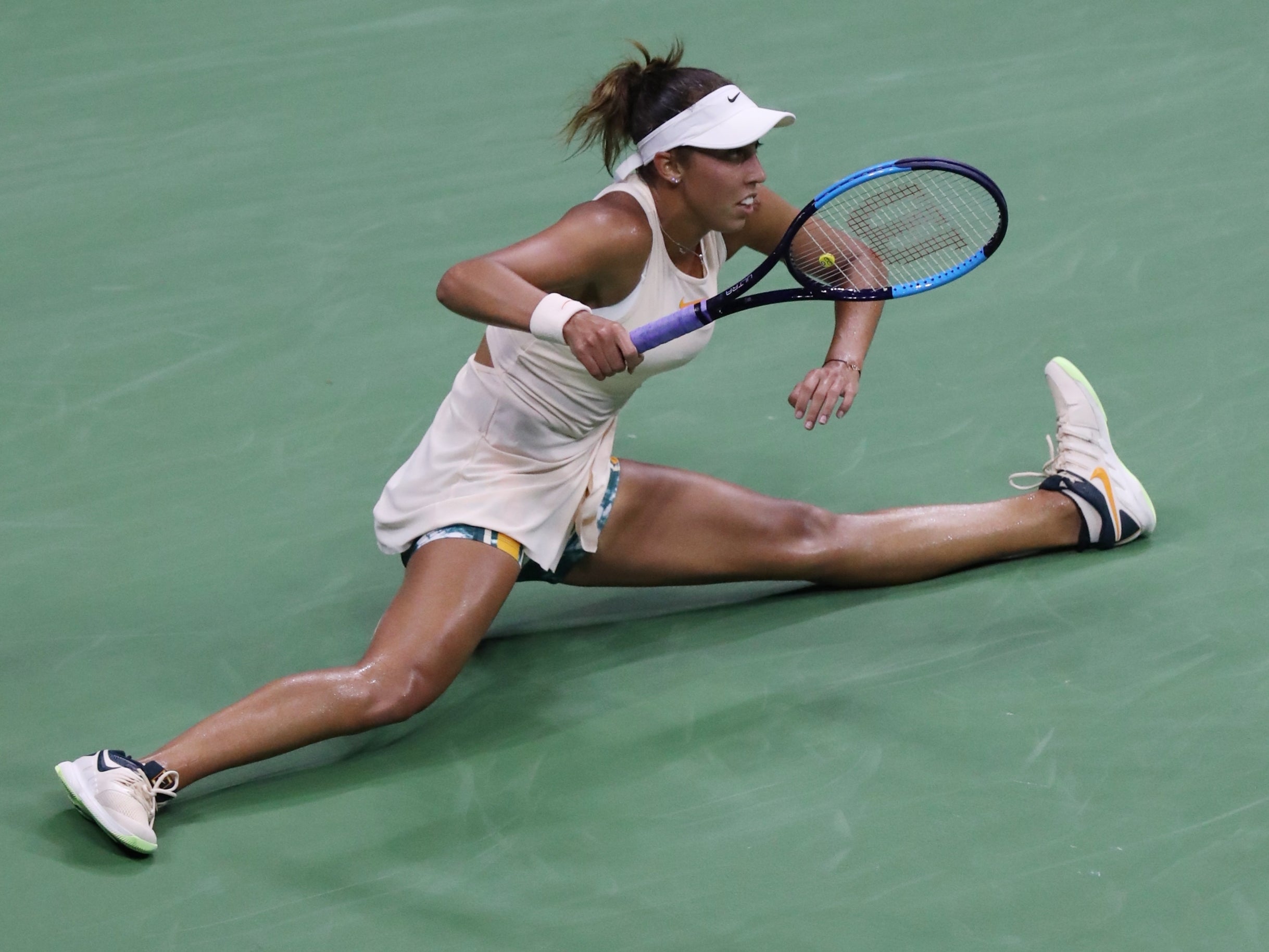
After Osaka’s emotional reaction to victory over Aryna Sabalenka in the fourth round, the 20-year-old Japanese was almost matter-of-fact in her celebrations after reaching the semi-finals.
“I feel like I was much more emotional [after reaching] the quarters and now I feel it’s like business again,” Osaka said afterwards. “The quarters was my mental goal every time I played a Grand Slam. After I got into the quarters, I want to keep going, so I feel like I have to be focused again.”
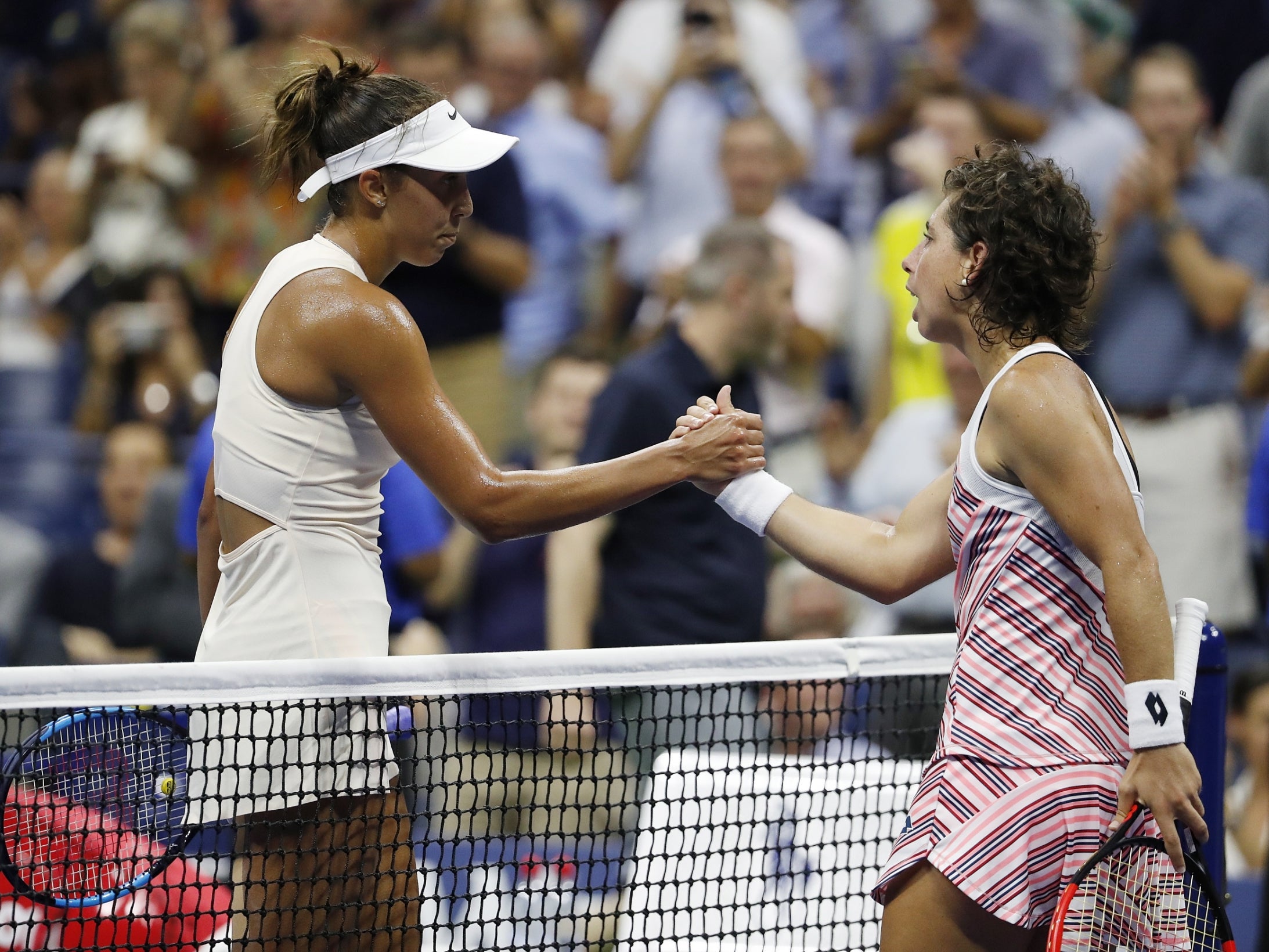
Osaka’s talent has been evident for at least two years now, but it was six months ago that she made her biggest breakthrough when she won the title at Indian Wells.
“I think winning in Indian Wells helped me a lot, because now I feel like the state of mind that I have here is that I don’t feel pressure,” she said. “I feel a little bit like I'm used to it.
“Every young person playing, they want to win Grand Slams and they want to be No 1, so of course that’s my goal.
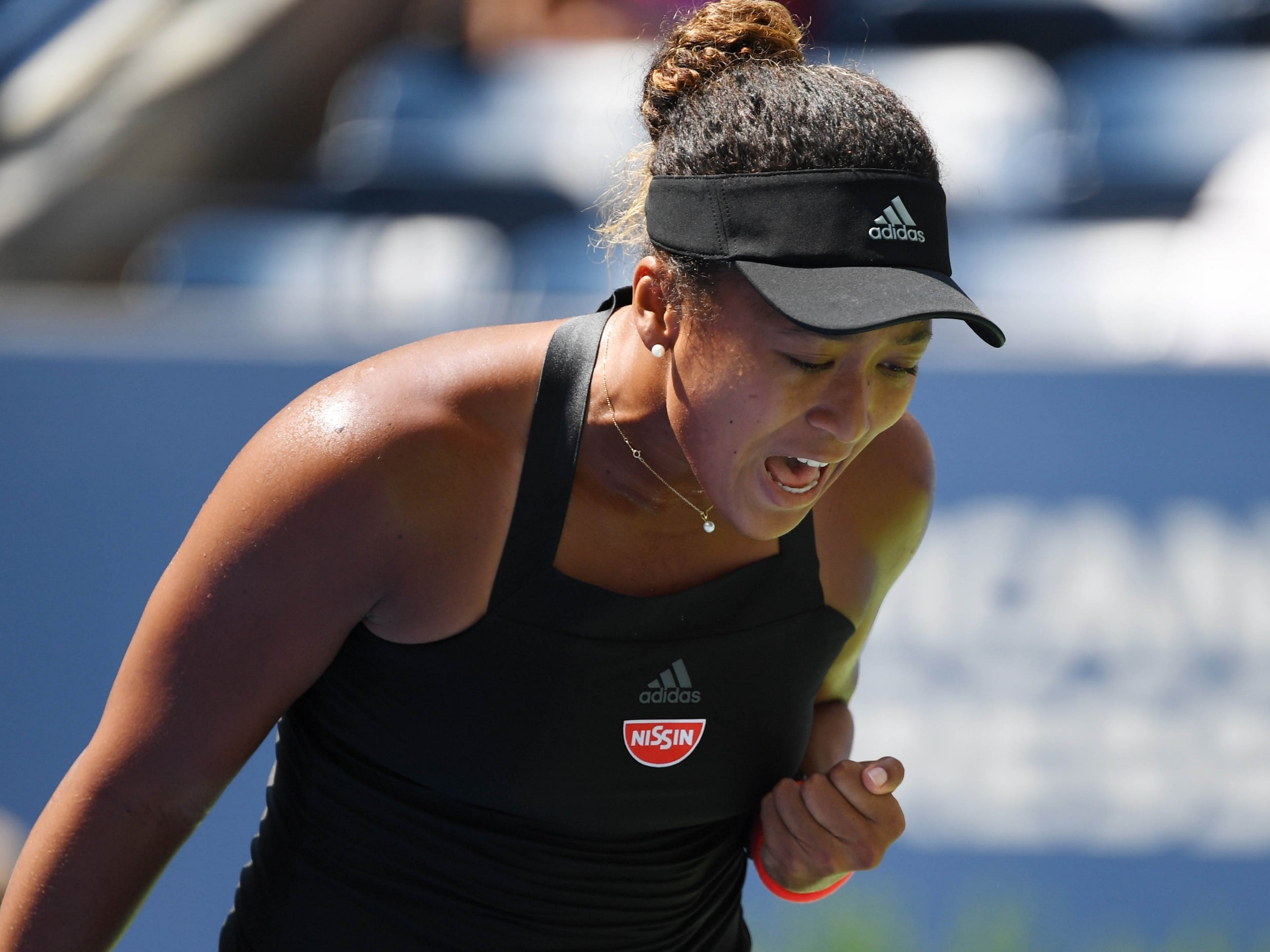
“I know I'm in a position that I can possibly do that, but I want to really think that I’m grateful to be in the position that I am in the first place. I know that the players that are at these final stages of the tournament, they’re really good. I know that everyone wants to win this tournament.”
Osaka’s coach is Sascha Bajin, who used to be Serena Williams’ hitting partner. He said that Osaka had matured as a player.
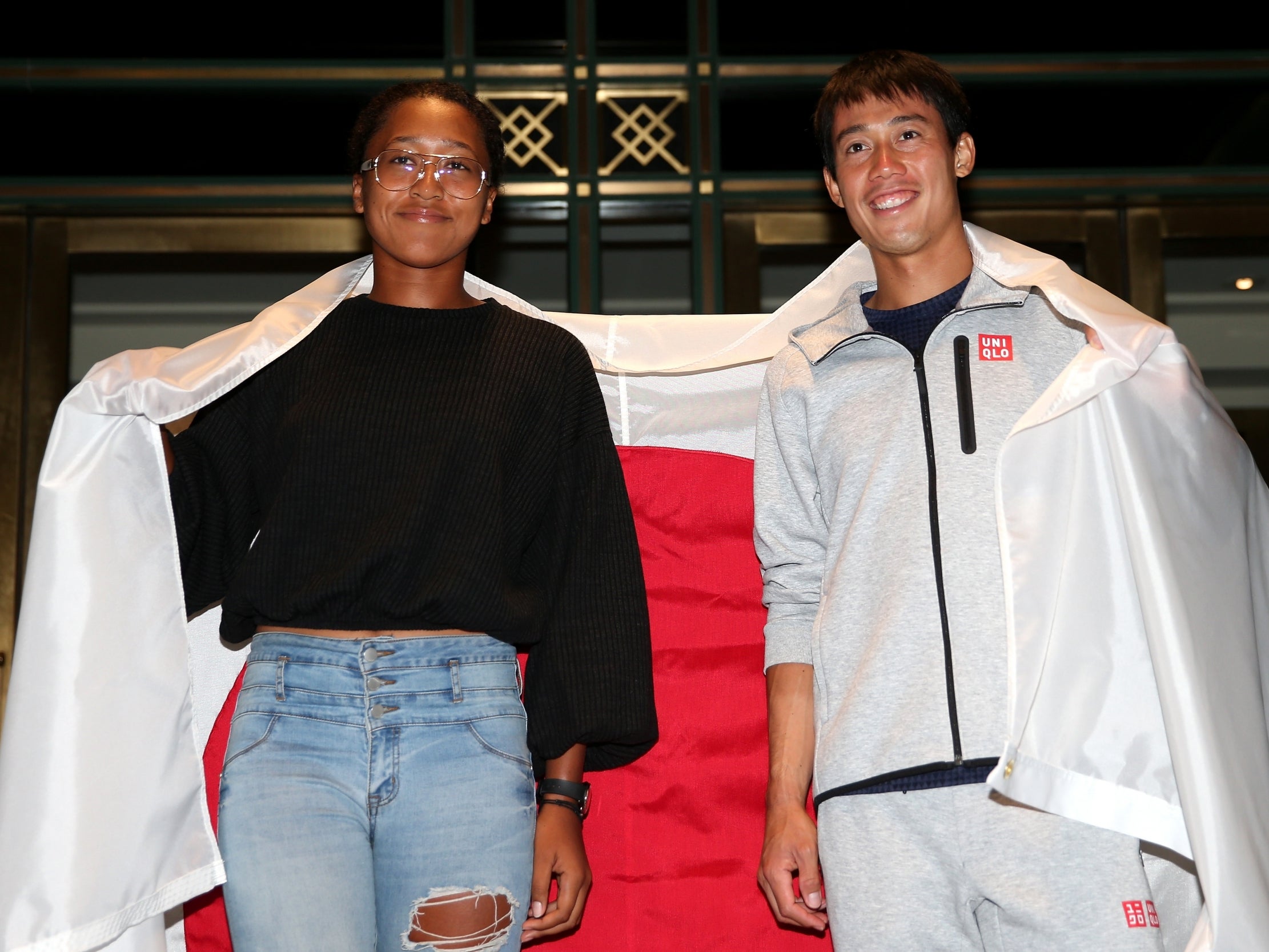
“It’s not a secret that there were a couple of matches in the past where she would get a little bit negative and down on herself just because things weren’t going her way,” Bajin said. “But I think slowly she’s finding a way to get herself out of it and not allow so many negative emotions in her life.”
He added: “I think she’s playing smarter now. She’s more open-minded on the court about other things than just trying to crush the opponent.”
Join our commenting forum
Join thought-provoking conversations, follow other Independent readers and see their replies
Comments